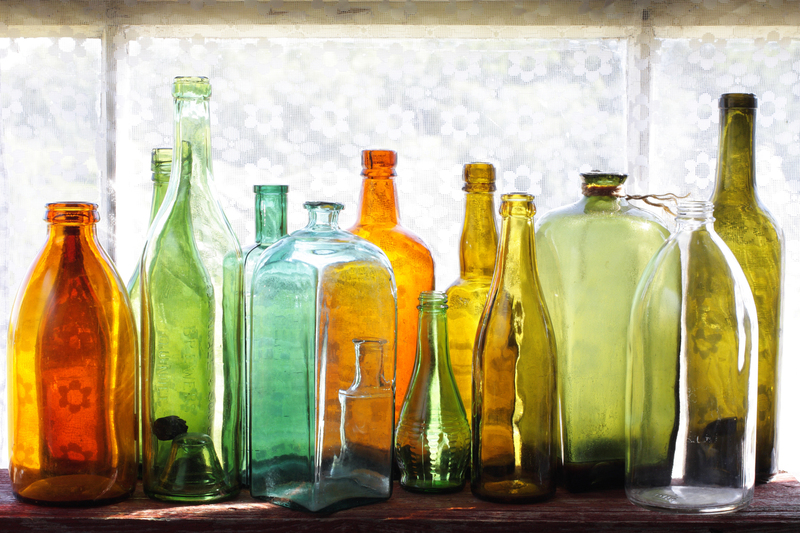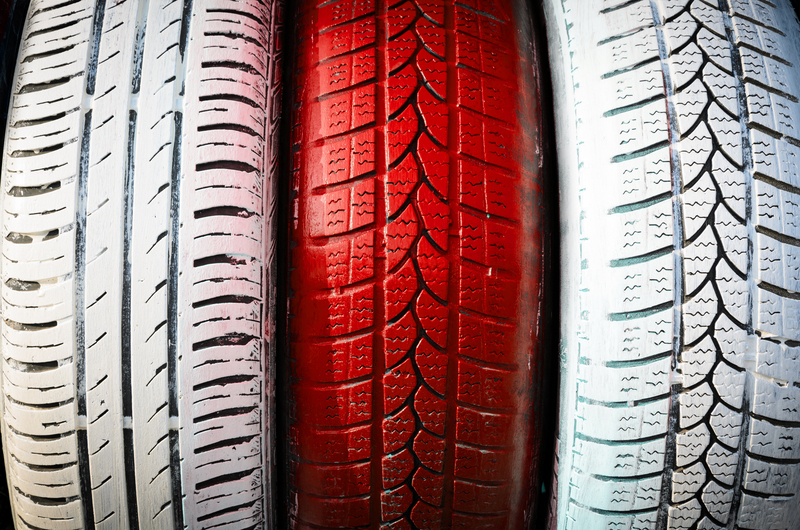Why Recycling Pots and Pans Matters for the Planet
In our everyday efforts to protect the environment, recycling has become a fundamental practice. While many people focus on paper, plastics, and glass, we often overlook recycling pots and pans. These essential kitchen items--once damaged, outdated, or simply unwanted--typically end up in landfills. In reality, recycling cookware can have an incredible impact on our planet's health. This comprehensive guide explores why recycling pots and pans matters for the planet, highlights sustainable disposal methods, and demonstrates how individuals can make a significant difference.

Understanding the Environmental Impact of Cookware Waste
The Scale of Cookware Waste
Every year, households worldwide discard millions of old pots and pans. With the global kitchenware market expanding, the volume of waste associated with cookware disposal is on the rise. When these products are thrown away, the majority end up in landfills, where their materials can persist for centuries.
- Non-biodegradable Materials: Most cookware is made from metals such as aluminum, stainless steel, or copper, all of which do not decompose easily.
- Toxic Additives: Nonstick coatings like Teflon release harmful chemicals if improperly incinerated or broken down.
- Resource Intensity: Producing new pots and pans from virgin materials consumes substantial energy and raw resources.
All of these factors highlight the critical importance of collecting, reusing, and recycling kitchenware rather than discarding it.
The Benefits of Recycling Pots and Pans
Reducing Landfill Waste
Landfills are not a sustainable solution. When you recycle old cookware, you directly decrease the burden on landfill sites, which are already stretched far beyond capacity.
Conserving Natural Resources
Cooking pots and pans recycling helps save natural resources required for new metal extraction. Mining metals is an energy-intensive process that causes significant environmental disturbance. By placing old metal cookware into the recycling stream, less mining is necessary.
- Lower Energy Use: Recycling metals uses up to 95% less energy compared to producing new materials.
- Water Conservation: Metal mining and refining require vast quantities of water, so recycling protects this vital resource.
- Reduced Greenhouse Gas Emissions: Less mining and manufacturing means fewer emissions contributing to climate change.
Preventing Harmful Chemicals from Entering the Environment
Many old pans feature nonstick coatings, paints, or enamel that can release toxic substances when they break down or are incinerated. Recycling cookware through proper channels ensures these chemicals are managed safely, reducing risks to soil and water.
How Pots and Pans Are Recycled
Sorting and Preparation
The first step in kitchenware recycling is sorting the items by their material type. Most recycling centers require large amounts of metal to be processed at once, so collecting your old pots and pans in batches is ideal.
- Remove Non-Metal Parts: Detach plastic handles, glass lids, and rubber grips if possible.
- Check Local Guidelines: Some centers take entire pans, while others need components separated first.
Shredding and Melting
After sorting, the metal parts of pots and pans are shredded and sent to a furnace. Here, they are melted down and purified. This recycled metal becomes raw material for new products--including not just cookware, but also automotive, construction, and electronic items.
Dealing with Nonstick and Specialty Coatings
Nonstick pans cannot always be recycled with regular scrap metal due to chemical coatings. Specialized recyclers handle these coatings separately, preventing environmental contamination. Sometimes, these items can be reused for art projects or upcycled for other household purposes.
The Global Importance of Recycling Kitchenware
Reducing Resource Extraction Worldwide
Mining for metals like aluminum and iron has significant global consequences, including deforestation, water pollution, and disruption of local communities. When consumers in every country contribute to responsible cookware disposal, the demand for raw materials is lowered everywhere, supporting broader sustainability efforts.
Supporting a Circular Economy
Recycling kitchen pots and pans supports the concept of a circular economy--an economic system focused on reusing and recycling materials, minimizing waste, and keeping products in use as long as possible. This contrasts sharply with a throwaway culture that encourages ever-increasing waste.
- Less reliance on landfills
- Greater value extracted from existing materials
- Reduction of global carbon footprint
How to Recycle Your Pots and Pans Effectively
Check Local Recycling Programs
Not all municipal programs accept cookware curbside. Contact your local recycling facility to learn about their guidelines on donating or disposing of pans and pots. Many scrap-metal yards and specialized recyclers gladly take unwanted cookware.
Donating vs. Recycling
If your old pots and pans are still usable, consider donating them to:
- Charities and homeless shelters
- Community kitchens
- Art schools (for creative uses)
- Online giving networks
Creative Reuse and Upcycling Ideas
Sometimes, a pot or pan is no longer fit for cooking but can have a second life. Here are a few innovative ideas:
- Transform pans into decorative wall art
- Make planters or garden features out of pots
- Turn lids into serving trays or clocks
Challenges in Recycling Cookware and How to Overcome Them
Lack of Public Awareness
Many people are simply unaware that recycling pots and pans is possible. Educational outreach, community programs, and clearer labeling on products can raise awareness about these environmentally friendly options.
Recycling Complex Cookware
Some items, like pans with fused multi-layer materials or ceramic coatings, are tough to recycle using traditional methods. Working with local specialty recyclers or sending items to manufacturers (some offer take-back programs) helps ensure these products are properly handled.
Logistics and Access
Not all communities have convenient scrap-metal collection points. However, by collaborating with local authorities, participating in electronics and metal recycling drives, and advocating for improved infrastructure, recycling access can be broadened for everyone.
The Future of Eco-Friendly Cookware
Innovations in Sustainable Materials
Manufacturers are making strides in producing eco-friendly cookware using recycled metals and safer, biodegradable coatings. When you choose brands that prioritize sustainability, you're encouraging a market shift toward greener options.
Producer Responsibility and Take-Back Programs
Some companies are launching take-back or trade-in programs for old pans. These initiatives encourage the return of worn-out cookware for proper recycling, closing the loop and reducing waste at the source. Supporting these companies motivates other manufacturers to adopt similar planet-friendly solutions.

What Every Consumer Can Do
Buy Durable, Recyclable Cookware
Invest in pots and pans designed for long-term use, made from materials that are easy to recycle (such as stainless steel or aluminum). Avoid products with complex coatings or mixed materials unless you know they can be properly recycled in your region.
Advocate for Better Recycling Systems
Speak up in your community for accessible, comprehensive recycling programs--including scrap-metal and cookware collection. Participate in local sustainability initiatives and educate friends and family about the significance of recycling cookware for environmental health.
Make Responsible Choices at Home
- Repurpose old pans creatively before disposing of them
- Separate metal components for easier recycling
- Donate usable cookware whenever possible
- Support companies with recycling or trade-in programs
Conclusion: Small Actions, Big Impact
Why recycling pots and pans matters for the planet goes far beyond simply reducing kitchen clutter. Each pound of metal saved through cookware recycling means fewer natural resources extracted, less landfill waste, and fewer emissions released into the atmosphere. By taking responsibility for our kitchenware's end-of-life, we take a stand for protecting ecosystems, conserving resources, and paving a greener future for the next generation.
So the next time you're ready to part ways with a beloved saute pan or a battered stockpot, think about the broader environmental benefits. Choose to recycle, donate, or upcycle--every action counts. In doing so, you become part of a global movement making our world a cleaner, more sustainable place.
